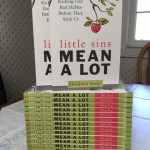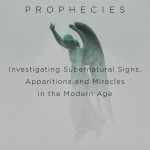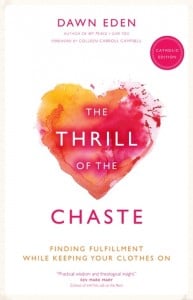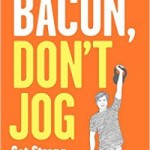As a rule, when it comes to interviewing celebrities, Tony Rossi is our go-to guy, around here. Last week, though, he could not work into his schedule an opportunity to talk to Mother Dolores Hart, the actress-turned-Benedictine-nun who was the subject of last year’s documentary, “God is the Bigger Elvis”, and this year’s best-seller, The Ear of the Heart. Mother Dolores is currently missing her cloister while she makes a major promotional tour in support of the book, and I had the opportunity to talk with her by phone last week.
She is 73 years old, now. Age has deepened her voice, and the medication she must take to treat peripheral neuropathy sometimes leaves her slow-of-speech, or struggling to find a word, but in our half-hour Mother Dolores utterly charmed me, and — in an era where words like “love” and “marriage” have become elastic — she has something to say to the times. As a Benedictine, I wished we could talk longer about our shared spirituality — the title of her book is taken from the very first line of the Holy Rule of Saint Benedict.
Perhaps that day will come in the future. For now, it was delightful to make the acquaintance of Mother Dolores, and to talk about The Ear of the Heart. Here is Part I of our interview:
ES: It’s been 50 years since you walked away from what the world counts as fulfillment and success. Can you describe coping with the world again, first promoting, the documentary, and now for the book?
Mother Dolores: I suppose that I have a unique place in the monastery brcause I have had a relationship many years ago with the wonderful actress named Patricia Neal. When Patricia came to the abbey in the wake of her gift of being there, we built a theater; we have an outdoor summer theater called The Gary-The Olivia named for Gary Cooper and Neal’s daughter, Olivia. And working with the theater – it’s had incredible success – it has taken on many many works of Shakespeare many works from Broadway, even musicals, and it’s been a wonderful opportunity to meet and actors and to meet the outside world.
To have a theater on the grounds of a monastery is very unusual, and also you and your community studied ballet under obedience for about 7 years. Can you talk a little bit about what art brings to faith?
 We’ve got some wonderful artists – Mother Praxedes made a 10 or 15 foot statue of St Anthony of the desert. She made this out of an old boiler that exploded in the basement and could no longer be used, and she took a blowtorch and cut out the cape and the wave of his tunic; she took things from inside the boiler to make the snouts of the pigs at his feet; it was extraordinary. She won a scholarship from school for this and then she finished it when she entered the monastery, to put on the front of our pighouse.
We’ve got some wonderful artists – Mother Praxedes made a 10 or 15 foot statue of St Anthony of the desert. She made this out of an old boiler that exploded in the basement and could no longer be used, and she took a blowtorch and cut out the cape and the wave of his tunic; she took things from inside the boiler to make the snouts of the pigs at his feet; it was extraordinary. She won a scholarship from school for this and then she finished it when she entered the monastery, to put on the front of our pighouse.
So you’re saying that faith and art have a way of coalescing into vision.
Absolutely, absolutely, because art becomes the exterior form of an inner imagination that is fired by faith.
You actually have a number of extremely accomplished and prominent women in Regina Laudis, I know Patton’s granddaughter is there, and also Mother Praxedes Baxter, a known sculptor, and I think also a few political movers and shakers, yes?
Yes, Sister John Mary came to us from I think Australia and New Zealand – her home front, we also have Mother Maria Immaculata, who was prominent in law with many opportunities in her firm and she was becoming involved with politics, in Connecticut. She helps us to keep our legal things on track.
It seems like all the sisters have something very unique that they bring the community when they enter. Why do you think Regina Laudis attracts so many women of note?
Well, I think that our foundress, Mother Benedict [Duss] was a surgeon in France and it was from that gift of her own professional capacity that she was drawn to found Regina Laudis. She was almost a POW in France [during World War II] and then was saved, and in the context of that experience — seeing the Americans enter — Patton’s army in fact, enter the city! She was inspired to make the foundation and she had always had the feeling that if the nuns can come with some professional background — something that they do that gives them a feeling of achievement in the world — it’s not something born of pride, or the clichés that attach themselves to someone who is successful, but it’s mainly because a person identifies with something that allows her to enter the incarnational aspect of the world and realize that Christ himself came to witness to the Incarnation. God became man, and therefore man in his own light, really wants to become like God, but you can’t do that just by thinking about it. You’ve got to do it by bringing your gift to some capacity of expression that allows you to know that the world is a good place; it’s not something to be left at the gate.
So, incarnation is a process and in order to fully and wholly be what God has intended you to be, then what you’re saying is it’s important to first embrace all of your potentiality, and at least understand what it could be, so that when you enter you’re bringing all of that promise with you?
Absolutely, exactly, because you know, we have one young woman right now who is 18 — and pining to enter the Abbey — and Mother Abbess has said, ‘Carolyn, you’ve got to do something — to bring your own desire for fulfillment in the world to that – because you’ll come in and you’ll be in the midst of distraction, longing to leave to just do something.’
A means, then, of making sure that you know yourself before you undertake this tremendous project of beginning to know God. To know what it is you’re offering?
Yes, Exactly.
Didn’t Lady Abbess actually do this to you? When you first went to the Abbey, didn’t she tell you to go away –- to go be Dolores Hart for a while?
Yes, she did! I went to her in 1959, and in my own imagination I thought “My! This might be the thing for me to do!” And I asked her and she said “No, you go back and you do your acting thing! That’s what you need to do, and really do it well.” And I was so happy! (Laughs) Because I felt, something inside me knew that it was an intellectual jump, I had to make, that it had nothing to do with my body and my being. And so I did return to world of films and was able to — between ‘59 and ‘63 — make something like 7 more films. It was actually my fiancé — I was engaged to Don Robinson –- who, after a very unfortunate party, where he said that I was “not there”, that I didn’t enjoy myself and [his asking] “where was I”, [made me] really stop and think about where I was. And I said, “Don, I’ve got to go back to Regina Laudis for a few days.”
That was the second time I asked Lady Abbess what she thought and she said “well Dolores, what is it you want?” And I said, “You want to know what I want? I want to marry Don! I want an Oscar! I want a new home! And I want a lot more money!”
And she just said, “Yeah that’s all wonderful, but why are you here?” And in that question, I had to just dig to the depths and say that what I really wanted was the will of the Lord — and that this was where I wanted to find it. And so, she told me that I could enter but she said not for five months because “You have to get your life together so you can leave it honestly, and I don’t want you to tell anyone what you’re doing,” because June Haver had just come out of a convent and she said “you will just be a newspaper article.” And I said, “But I’ve got to tell Don,” which I did.
That was a hard moment.
He was furious. Oh, He was so upset. But he said a very unexpected thing which was, ‘you know all love relationships don’t end at the altar, and I will be faithful to you in this.’ Well, I thought that was a head-trip too. I didn’t see how in the world he could do that, but in effect, fifty years later, Don did stay with me. He became a great friend to Regina Laudis and he visited at least twice a year, or he would send things he knew we needed and up until he died a few months ago, he was just a wonderful champion.
I really love what you are saying about Don and feel like this is an idea that needs to be spoken to the times: Don loved you so much that he was able to release you, and doesn’t that kind of model God’s love for us? I was thinking about this while reading your book and and also in the context of something I learned while writing Strange Gods — that God is so remarkable in his love as to give us free will, which makes him vulnerable to us; he takes the chance that we’d walk away from him. Doesn’t Don sort of model that for you?
What a wonderful description! Because no one has ever made that comparison before, and I think that’s absolutely right! I think that’s perfect because he did release me; and he gave me the freedom to do with my life what was true, and he said he would support me in that, and if that is not an image of God’s love for us -– and, as you say, God gives us free will. It’s only when we use that free will to do the wrong thing that we step outside of the gift of the Creator.
You’re giving me goosebumps to hear you say it; I really love the story of you and Don because it is so instructive and heroic!
Oh yes, and Don got Jack Wohl, the producer who did Son-Rise a film about a young boy who is autistic, and he thought Jack would be the perfect one to do [“God is the Bigger Elvis”]; he was such a champion. And this was ten years ago! At the same time Dick said he wanted us to work on a book and the two gentlemen were friends, Don and Dick. Their thought was that if we got a good book, then Jack would have a basis of doing a good film.
It was an amazing thing to feel their togetherness in wanting to serve what they felt was, in effect, the desire of the [then] Papal Nuncio, Pietro Sambi. Two years ago Sambi said to me “I want you to do a film on consecrated life.” And I told him there is no way I could do that; I didn’t have any contact with anyone in Hollywood.
It didn’t occur to me that all of this was buzzing around me. I didn’t know what to do until I got back and could talk to the Abbess, and she said “You need to pray about this.”
Three days later, HBO called and said “We want to do a film on you.” I asked, had they talked to Sambi and they said they had never talked to him at all. That’s when Mother said “You’ve got a choreographer.”
So, HBO did make the film but it still was not Jack Wohl’s full idea; he still wanted to do a film made of the book, which he felt would be more inclusive, and more of what was necessary of a true rendering of the story of the community and my participation.
Part II of my interview with Mother Dolores can be found here
Related:
Mother Dolores Hart Wins Christophers Life Achievement Award













